Roosters are birds with plenty of personalities. They defend their flock against external threats and internal conflict. They went on a quest for treats for their chickens to keep them from wandering too far from the farm. Introducing a rooster in your hen flock is an excellent method to give your chickens more natural living conditions. But you might be thinking about that how long do roosters live? What elements influence a rooster’s lifetime, and does breed matter in terms of longevity? Any aspiring poultry entrepreneur would have all these legitimate questions, so let’s get into it.
Roosters – What We know?
Roosters grown in a healthy environment may survive for eight years or more. Most of their lives are spent with a high level of awareness, as roosters would be less passive than hens and are there to defend the other birds. On a farm, roosters experience less stress and may count on human caregivers to offer additional security against any dangers. So, how long do roosters live?
In the wild, roosters typically live between two and five years. But When given the proper nutrition and care, some roosters may survive for over ten years, but when they get bred for fighting, the birds are only lucky to reach a few years of age. The horrifying sport of “cockfighting” involves two hostile birds engaging in a fight to the death.
Factors to Affect the Lifespan of Roosters
Storms and severe weather, noisy neighbors’ dogs, and foxes roaming all around the coop at night are environmental elements that worry your flock and shorten their longevity.
There will always be events that have an impact on your flock when you raise chickens or how long do roosters live. Due to these dangers, there is always a possibility that one of your hens or roosters will become sick, get hurt, or just become stressed out. Following are some factors that affect the lifespan of your rooster:
-
Weather and Environment
How long a rooster lives will get greatly influenced by the climate it inhabits, the habitat conditions, and the presence of predators. They are more likely to get hurt, get sick, or die in a harsher environment.
Certain weather conditions benefit some chicken breeds more than others. While most animals find it difficult to survive in extremely hot or cold conditions, chickens often adapt to various temperatures fairly well. In warm climates, chickens struggle to remain cool since they cannot sweat.
The state of your chicken coop is crucial to the general well-being of your animals. Roosters will likely live longer and suffer fewer illnesses or weather-related injuries in regions of the world with milder climates. To keep them healthy, hens and roosters require a clean, well-ventilated coop. Poor ventilation and an ammonia-filled coop can seriously harm a chicken’s upper respiratory system.
-
Predators
Another significant danger associated while raising your flock is the presence of a predator. Since they are rather delectable, it is not surprising that many wild creatures may attempt to slaughter a member of your herd. The roosters are often the guardians and frequently lose their lives defending their females.
-
Diet
It shouldn’t be surprising that a rooster’s food significantly impacts its well-being and lifespan. You can’t expect your chickens to be as healthy as those fed well if you aren’t giving them a nice, balanced diet that includes high-quality pellets feed and occasionally some fruits and vegetables. Your flock’s general development and well-being depend on you ensuring they receive all the necessary vitamins and minerals.
-
Health
Stress can harm some people since it can impair their immune systems and shorten their lifespans. You merely need to glance around your rooster and attempt to identify what could be upsetting him if you are concerned that he is agitated.
In most cases, the roosters might also get stressed in most situations. Examples include congestion, harassment by other roosters, loud, excessive sounds, and predators.
When there is an excessive rivalry with other roosters for territories and hens for mating, it can be pretty stressful for roosters. Having more than one rooster for every ten hens is not advised. There may not be much you can do if your rooster is already prone to disease or other genetic disorders. Health and genetics may be mostly beyond your control.
How to Know the Age of a Rooster?
Although estimating a rooster’s age could be challenging, some indicators might help. The condition of their shanks may determine your roosters’ age. Younger chickens have smoother shanks, whereas adult birds have larger, rougher shanks.
Males under the age of one are known as cockerels. The best way to determine a rooster’s age is by measuring the length of his leg spurs, as shorter spurs indicate a cockerel. The issue is that adult rooster spurs will also be little if removed.
Rooster chicks could even start to crow and tower taller than their mother nesting partners. They will develop combs that are bigger and redder than those of females. The inside of the males’ legs will expand in a noticeable bulge, from which spurs will ultimately emerge. A baby rooster’s spurs are only a fraction of an inch long at six months of age. By the time he is two years old, his spurs may be an inch or longer. As he ages, his spurs get longer.
Final Thought
A rooster deserves to enjoy a long life, whether kept as a pet or as the ruler of your coop. The precise lifespan of roosters relies on a wide range of variables. Therefore it’s important to take them all into account. To sum up, roosters may live for roughly 15 years if a healthy environment are given to them. Your roosters deserve all that, even if it might not be a stroll in the park, because they contribute to the flock.
You May Also Like
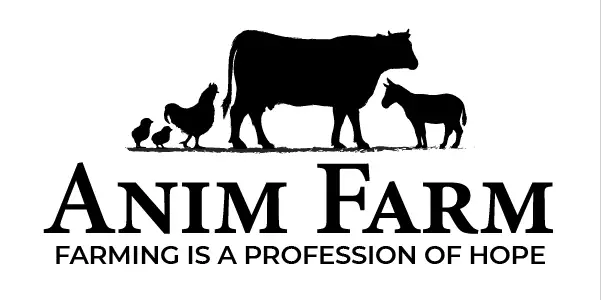
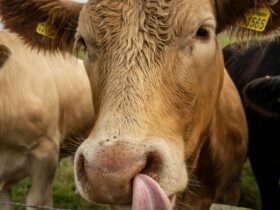
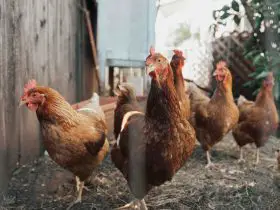
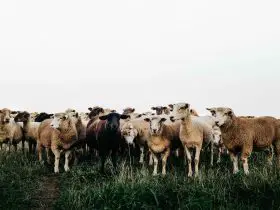
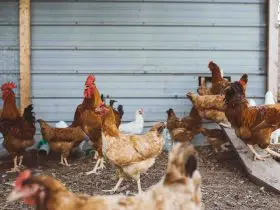
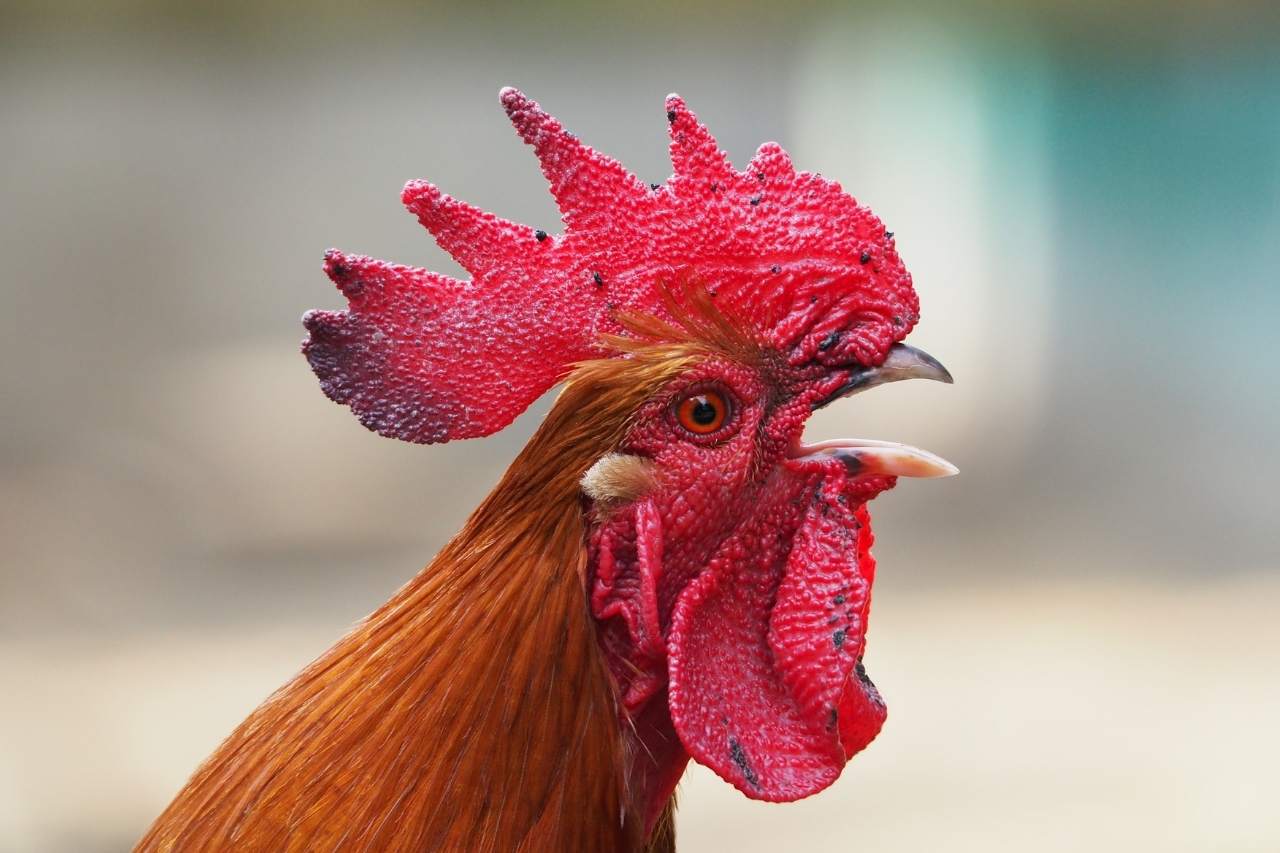
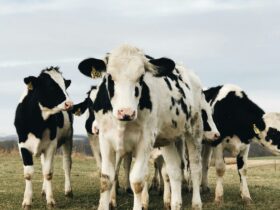
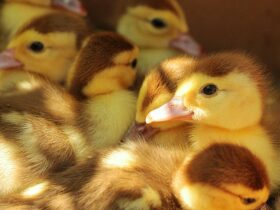
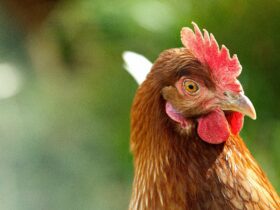

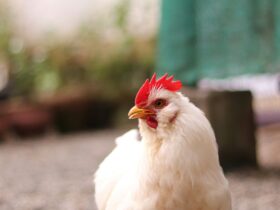

Hello!! Welcome to Anim Farm